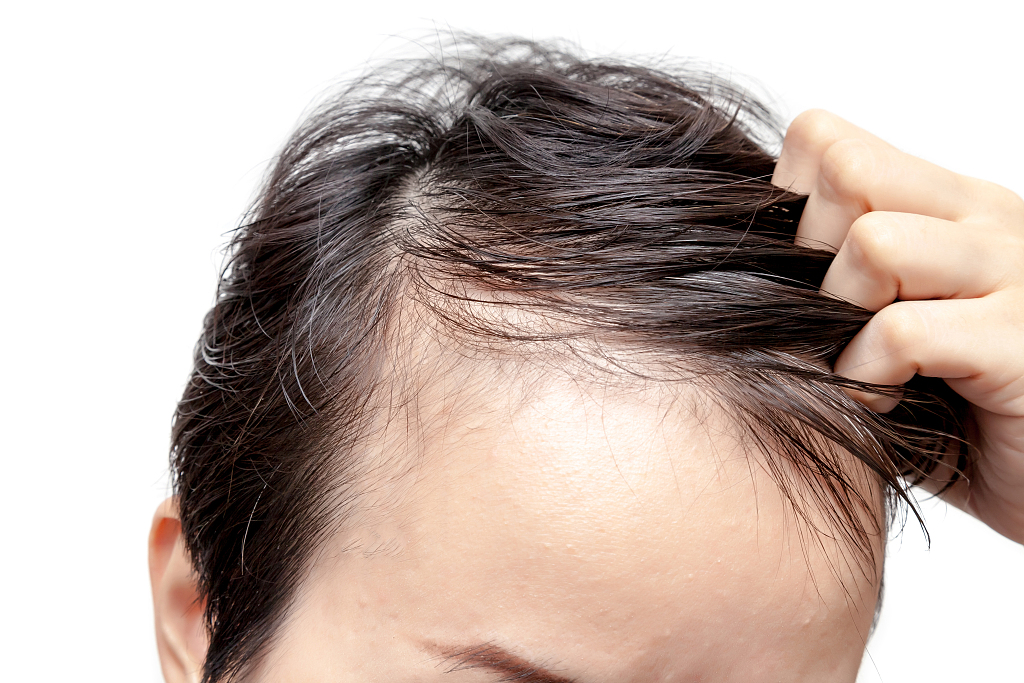
File Photo: VCG.
Hair loss has become an increasingly common problem for a lot of people in China, especially among millennials. A recent survey released by China's National Health Commission shows that one in six people, or over 250 million people, are suffering from hair loss.
According to the survey, men aged 20 to 40 are the main group with the problem.
The rising number of people suffering from hair loss has fueled a surge in the wig and hair transplant markets.
According to the owner of one wig shop, the proportion of young consumers visiting the shop has increased from 10 percent to 25-30 percent now, China Central Television (CCTV) reported.
Different from elderly consumers, young consumers are more concerned about their looks. And they prefer to choose products such as hairpieces or hair toppers to create a more natural look.
To save the receding hairlines, many people have turned to hair transplant surgery. Around 57.4 percent of consumers who conduct the treatment are people born post 1990, the survey unveiled.
Statistics show that the worth of China's hair transplant market jumped from 5.7 billion yuan (868 million U.S. dollars) to 16.3 billion yuan. In 2020, the market will exceed 20 billion yuan.
However, hair transplant surgery is still expensive for many young people, and the price varies from thousands up to tens of thousands of yuan. however, many say the price is worth it if the results are good.

Excessive anxiety can, in a way, interrupt the normal growth cycle of hair, says Peking University First Hospital dermatologist Yang Shuxia. (Photo: VCG)
So, what are the main reasons for the rash of receding hairlines among men under 40?
In an interview with Peking University First Hospital dermatologist Yang Shuxia, she noted that "excessive anxiety can, in a way, interrupt the normal growth cycle of hair."
However, she suggested that people don't need to be panic about the hair loss. Instead, she urged people to try to notice their significant changes in the past few months such as experiencing constant anxiety, feversw, irregular daily routines or rapid weight loss, and then wait for three months to see if those symptoms go away.
She also explained that not all types of hair loss are the same. Pattern hair loss, for instance, can be inherited, while alopecia is caused by problems with the immune system.


